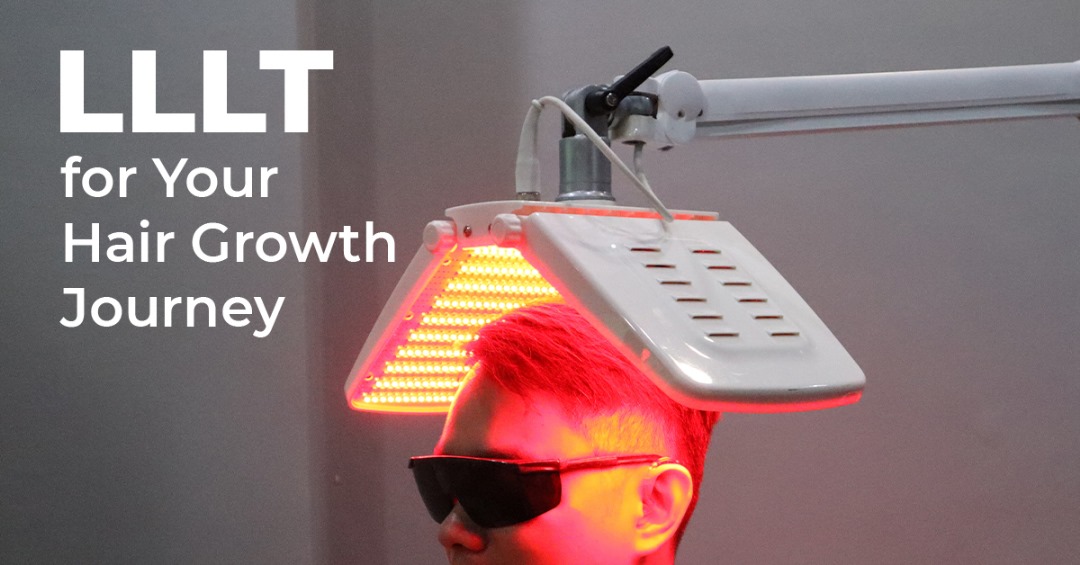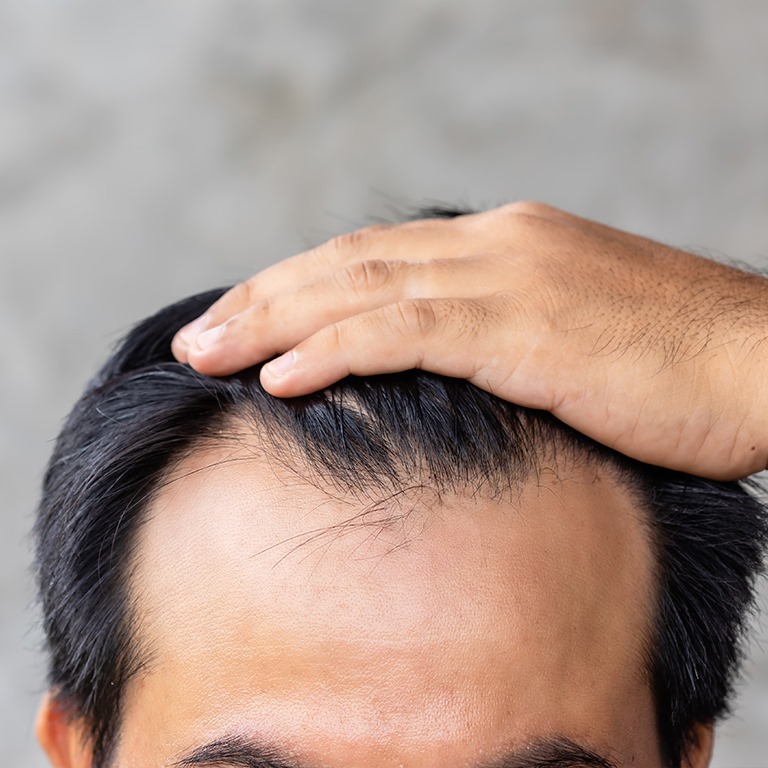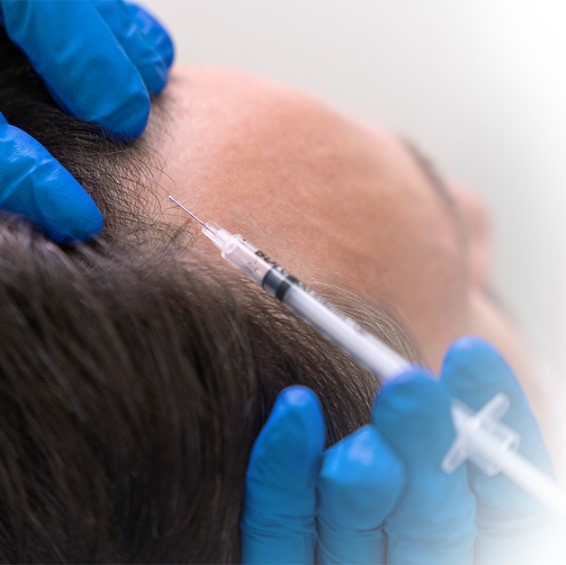
Low level laser therapy also known as light emitting diode or LED therapy is a safe & potentially effective hair loss treatment. It is best used to prevent hair loss, however there are limited studies to suggest that hair counts can increase by up to 39%. Treatment is life-long. Ideally low-level lasers should be combined with medical & surgical therapy including anti-androgens, PRP & follicular unit extraction.
What types of hair loss responds best to low level lasers?
– Male pattern hair loss
– Female pattern hair loss
– Alopecia areata
– Telogen effluvium
How do LLLT work in hair growth?
Research suggests that LLLT may have several mechanisms that contribute to hair regrowth:
1. Increased Blood Flow: LLLT is thought to improve blood flow to the hair follicles, which can supply more nutrients and oxygen to the hair roots. This enhanced circulation can potentially stimulate follicular activity and promote hair growth.
2. Reduced Inflammation
Chronic inflammation can contribute to hair loss by damaging hair follicles. LLLT might help to reduce inflammation in the scalp, creating a more favorable environment for hair regrowth.
3. Activates heat shock proteins
Some of these heat shock proteins – especially HSP27 – are utilized for cell proliferation and division. And in the scalp, increasing these proteins also increases follicular stem proliferation. In other words, it encourages hair regrowth.
Researchers discovered laser’s therapy’s effect on hair health. It can accelerate hair growth rate and even increase hair follicle proliferation in humans.
While LLLT is generally considered safe, consulting with a healthcare professional before starting any treatment is advisable, especially for individuals with underlying medical conditions or those taking medications. LLLT is most effective for individuals experiencing mild to moderate hair loss, and results can vary based on factors such as age, genetics, and the duration of hair loss.
Feathair Hair Growth Specialist is offering Low-Level Laser Treatment. Contact us or book a consultation with us to find out more.


